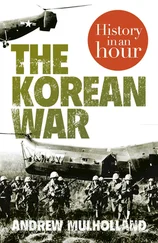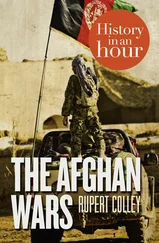1 ...6 7 8 10 11 12 ...18 A retired officer of the Indian Staff Corps and a few European officers of various nationalities were sent to Khartoum to organise the new field force. Meanwhile the Mahdi, having failed to take by storm, laid siege to El Obeid, the chief town of Kordofan. During the summer of 1883 the Egyptian troops gradually concentrated at Khartoum until a considerable army was formed. It was perhaps the worst army that has ever marched to war. One extract from General Hicks's letters will suffice. Writing on the 8th of June, 1883, to Sir E. Wood, he says incidentally: 'Fifty-one men of the Krupp battery deserted on the way here, although in chains.' The officers and men who had been defeated fighting for their own liberties at Tel-el-Kebir were sent to be destroyed, fighting to take away the liberties of others in the Soudan. They had no spirit, no discipline, hardly any training, and in a force of over eight thousand men there were scarcely a dozen capable officers. The two who were the most notable of these few—General Hicks, who commanded, and Colonel Farquhar, the Chief of the Staff—must be remarked.
El Obeid had fallen before the ill-fated expedition left Khartoum; but the fact that Slatin Bey, an Austrian officer in the Egyptian service, was still maintaining himself in Darfur provided it with an object. On the 9th of September Hicks and his army (the actual strength of which was 7,000 infantry, 400 mounted Bashi Bazuks, 500 cavalry, 100 Circassians, 10 mounted guns, 4 Krupps, and 6 Nordenfeldt machine guns) left Omdurman and marched to Duem. Although the actual command of the expedition was vested in the English officer, Ala-ed-Din Pasha, the Governor-General who had succeeded Raouf Pasha, exercised an uncertain authority. Differences of opinion were frequent, though all the officers were agreed in taking the darkest views of their chances. The miserable host toiled slowly onward towards its destruction, marching in a south-westerly direction through Shat and Rahad. Here the condition of the force was so obviously demoralised that a German servant (Gustav Klootz, the servant of Baron Seckendorf) actually deserted to the Mahdi's camp. He was paraded in triumph as an English officer.
On the approach of the Government troops the Mahdi had marched out of El Obeid and established himself in the open country, where he made his followers live under military conditions and continually practised them in warlike evolutions. More than forty thousand men collected round his standard, and the Arabs were now armed with several thousand rifles and a few cannon, as well as a great number of swords and spears. To these proportions had the little band of followers who fought at Abba grown! The disparity of the forces was apparent before the battle. The Mahdi thereupon wrote to Hicks, calling on him to surrender and offering terms. His proposals were treated with disdain, although the probable result of an engagement was clear.
Until the expedition reached Rahad only a few cavalry patrols had watched its slow advance. But on the 1st of November the Mahdi left El Obeid and marched with his whole power to meet his adversary. The collision took place on the 3rd of November. All through that day the Egyptians struggled slowly forward, in great want of water, losing continually from the fire of the Soudanese riflemen, and leaving several guns behind them. On the next morning they were confronted by the main body of the Arab army, and their attempts to advance further were defeated with heavy loss. The force began to break up. Yet another day was consumed before it was completely destroyed. Scarcely five hundred Egyptians escaped death; hardly as many of the Arabs fell. The European officers perished fighting to the end; and the general met his fate sword in hand, at the head of the last formed body of his troops, his personal valour and physical strength exciting the admiration even of the fearless enemy, so that in chivalrous respect they buried his body with barbaric honours. Mohammed Ahmed celebrated his victory with a salute of one hundred guns; and well he might, for the Soudan was now his, and his boast that, by God's grace and the favour of the Prophet, he was the master of all the land had been made good by force of arms.
No further attempt was made to subdue the country. The people of the Soudan had won their freedom by their valour and by the skill and courage of their saintly leader. It only remained to evacuate the towns and withdraw the garrisons safely. But what looked like the winding-up of one story was really the beginning of another, much longer, just as bloody, commencing in shame and disaster, but ending in triumph and, let us hope, in peace.
I desire for a moment to take a more general view of the Mahdi's movement than the narrative has allowed. The original causes were social and racial. But, great as was the misery of the people, their spirit was low, and they would not have taken up arms merely on material grounds. Then came the Mahdi. He gave the tribes the enthusiasm they lacked. The war broke out. It is customary to lay to the charge of Mohammed Ahmed all the blood that was spilled. To my mind it seems that he may divide the responsibility with the unjust rulers who oppressed the land, with the incapable commanders who muddled away the lives of their men, with the vacillating Ministers who aggravated the misfortunes. But, whatever is set to the Mahdi's account, it should not be forgotten that he put life and soul into the hearts of his countrymen, and freed his native land of foreigners. The poor miserable natives, eating only a handful of grain, toiling half-naked and without hope, found a new, if terrible magnificence added to life. Within their humble breasts the spirit of the Mahdi roused the fires of patriotism and religion. Life became filled with thrilling, exhilarating terrors. They existed in a new and wonderful world of imagination. While they lived there were great things to be done; and when they died, whether it were slaying the Egyptians or charging the British squares, a Paradise which they could understand awaited them. There are many Christians who reverence the faith of Islam and yet regard the Mahdi merely as a commonplace religious impostor whom force of circumstances elevated to notoriety. In a certain sense, this may be true. But I know not how a genuine may be distinguished from a spurious Prophet, except by the measure of his success. The triumphs of the Mahdi were in his lifetime far greater than those of the founder of the Mohammedan faith; and the chief difference between orthodox Mohammedanism and Mahdism was that the original impulse was opposed only by decaying systems of government and society and the recent movement came in contact with civilisation and the machinery of science. Recognising this, I do not share the popular opinion, and I believe that if in future years prosperity should come to the peoples of the Upper Nile, and learning and happiness follow in its train, then the first Arab historian who shall investigate the early annals of that new nation will not forget, foremost among the heroes of his race, to write the name of Mohammed Ahmed.
Chapter II: The Fate of the Envoy
Table of Contents
All great movements, every vigorous impulse that a community may feel, become perverted and distorted as time passes, and the atmosphere of the earth seems fatal to the noble aspirations of its peoples. A wide humanitarian sympathy in a nation easily degenerates into hysteria. A military spirit tends towards brutality. Liberty leads to licence, restraint to tyranny. The pride of race is distended to blustering arrogance. The fear of God produces bigotry and superstition. There appears no exception to the mournful rule, and the best efforts of men, however glorious their early results, have dismal endings, like plants which shoot and bud and put forth beautiful flowers, and then grow rank and coarse and are withered by the winter. It is only when we reflect that the decay gives birth to fresh life, and that new enthusiasms spring up to take the places of those that die, as the acorn is nourished by the dead leaves of the oak, the hope strengthens that the rise and fall of men and their movements are only the changing foliage of the ever-growing tree of life, while underneath a greater evolution goes on continually.
Читать дальше












